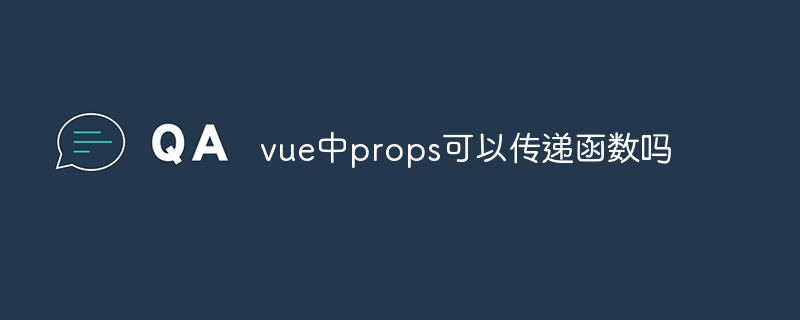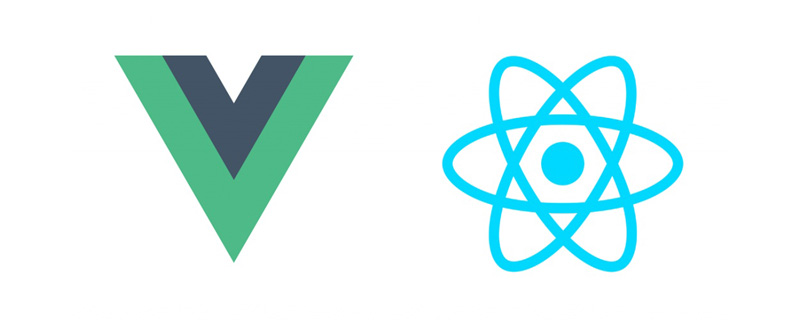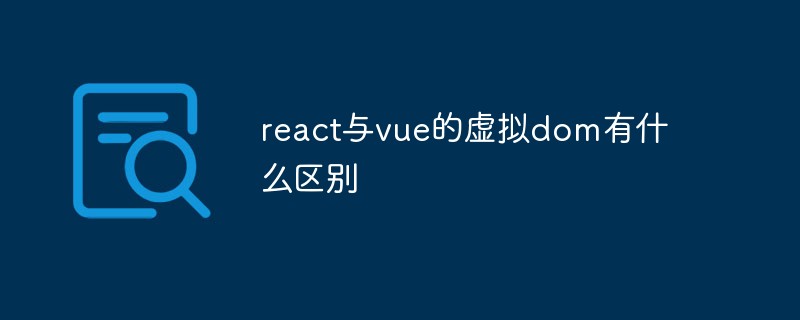What do hooks mean for Vue? This article will take you to understand Hooks in Vue and talk about its significance for Vue. I hope it will be helpful to everyone!

The Hooks we are going to talk about in this article are different from Lifecycle Hooks (life cycle hooks), which were introduced into React in v16.7.0-alpha ;Although Hooks was proposed by React, its essence is an important code combination mechanism, which is of great benefit to the entire JavaScript framework system; take a moment to talk about it in detail today: What does Hooks mean to Vue? ?
Hooks provide a clearer way to organize code, make code reusable, and more importantly, allow different logical parts to communicate and work together. [Related recommendations: vue.js video tutorial]
Problem background
Why were Hooks raised? As far as React is concerned, the original background of the problem is this:
When it comes to expressing the concept of state, Classes are the most common organizational form. The class itself has some problems, such as long and complicated binding relationships, making it difficult to read, and the direction of This always makes people confused;
Not only that, in terms of reuse, use rendering tools or high-order components The class pattern is very common, but it is easy to fall into the "pyramid of doom" (Pyramid of Doom), which can be understood as excessive nesting relationships;
Hooks are here to solve these problems ; Hooks allow us to use function calls to define the state logic of components. These functions are more composable and reusable; at the same time, state access and maintenance can still be performed;
Example: @dan_abramov's code from #ReactConf2018
- Picture①

- Picture②
There is a transition from Figure ① to Figure ②, the component code is recombined, and then exported as a function for external reuse;
In terms of maintenance, Hooks Provides a single, functional way to handle shared logic with the potential to reduce code size.
Vue Hooks
Why do we use Hooks in Vue? After all, there are no frequently used classes in Vue; in Vue we use mixins to solve the same reuse logic of components;
What is the problem with mixins? Can Hooks solve it?
There are two main problems:
mixins cannot transfer state;
There is no clear explanation of the logical source ;
Hooks can solve these two points very well;
For example:
Transfer status
Hooks1
import { useData, useMounted } from 'vue-hooks';
export function windowwidth() {
const data = useData({
width: 0
})
useMounted(() => {
data.width = window.innerWidth
})
// this is something we can consume with the other hook
return {
data
}
}
- Hooks2
// the data comes from the other hook
export function logolettering(data) {
useMounted(function () {
// this is the width that we stored in data from the previous hook
if (data.data.width > 1200) {
// we can use refs if they are called in the useMounted hook
const logoname = this.$refs.logoname;
Splitting({ target: logoname, by: "chars" });
TweenMax.staggerFromTo(".char", 5,
{
opacity: 0,
transformOrigin: "50% 50% -30px",
cycle: {
color: ["red", "purple", "teal"],
rotationY(i) {
return i * 50
}
}
},
...
Passing values between two hooks:
<script>
import { logolettering } from "./../hooks/logolettering.js";
import { windowwidth } from "./../hooks/windowwidth.js";
export default {
hooks() {
logolettering(windowwidth());
}
};
</script>
We can use it throughout the application Hooks combination logic;
Clear source
In the src/hooks folder, a Hooks is created to implement: pausing the page when opening the dialog box to view the content , and allow scrolling again after viewing the dialog box.
It is likely to be used multiple times in the application;
import { useDestroyed, useMounted } from "vue-hooks";
export function preventscroll() {
const preventDefault = (e) => {
e = e || window.event;
if (e.preventDefault)
e.preventDefault();
e.returnValue = false;
}
// keycodes for left, up, right, down
const keys = { 37: 1, 38: 1, 39: 1, 40: 1 };
const preventDefaultForScrollKeys = (e) => {
if (keys[e.keyCode]) {
preventDefault(e);
return false;
}
}
useMounted(() => {
if (window.addEventListener) // older FF
window.addEventListener('DOMMouseScroll', preventDefault, false);
window.onwheel = preventDefault; // modern standard
window.onmousewheel = document.onmousewheel = preventDefault; // older browsers, IE
window.touchmove = preventDefault; // mobile
window.touchstart = preventDefault; // mobile
document.onkeydown = preventDefaultForScrollKeys;
});
useDestroyed(() => {
if (window.removeEventListener)
window.removeEventListener('DOMMouseScroll', preventDefault, false);
//firefox
window.addEventListener('DOMMouseScroll', (e) => {
e.stopPropagation();
}, true);
window.onmousewheel = document.onmousewheel = null;
window.onwheel = null;
window.touchmove = null;
window.touchstart = null;
document.onkeydown = null;
});
}
Call it in the AppDetails.vue component:
<script>
import { preventscroll } from "./../hooks/preventscroll.js";
...
export default {
...
hooks() {
preventscroll();
}
}
</script>
Summary
- Original summary
Vue Hooks can already be used with Vue 2.x, but are still in the experimental stage. We plan to integrate Hooks into Vue 3, but it will still be different from React Hooks;
- Summary of this article
Hooks has been applied to Vue3 , that is, the setup thing, but it does have some differences from React's Hooks; it is recommended to read What is the advantage of Vue3? (Detailed comparison with React Hook)
Address https://zhuanlan.zhihu.com/p/133819602
In fact, I understand its design intention, even if it is not original By appropriating the framework and using JS natively, you can create a similar reuse logic. Encapsulate the logic that implements a complete function into a function. Just look at the function name and you will know what it does. You don’t need to know its internal implementation. If you want to know, go to the corresponding hooks to find it. At least this is it. In a sense, it is consistent with functional programming design ideas;
The main body of this article is translated from: what-hooks-mean-for-vue (https://css-tricks.com/what -hooks-mean-for-vue/)
Author: Sarah Drasner
For more programming related knowledge, please visit: Programming Video! !
The above is the detailed content of Learn more about Hooks in Vue and talk about its significance to Vue!. For more information, please follow other related articles on the PHP Chinese website!
 vue中props可以传递函数吗Jun 16, 2022 am 10:39 AM
vue中props可以传递函数吗Jun 16, 2022 am 10:39 AMvue中props可以传递函数;vue中可以将字符串、数组、数字和对象作为props传递,props主要用于组件的传值,目的为了接收外面传过来的数据,语法为“export default {methods: {myFunction() {// ...}}};”。
 聊聊vue指令中的修饰符,常用事件修饰符总结May 09, 2022 am 11:07 AM
聊聊vue指令中的修饰符,常用事件修饰符总结May 09, 2022 am 11:07 AM本篇文章带大家聊聊vue指令中的修饰符,对比一下vue中的指令修饰符和dom事件中的event对象,介绍一下常用的事件修饰符,希望对大家有所帮助!
 如何覆盖组件库样式?React和Vue项目的解决方法浅析May 16, 2022 am 11:15 AM
如何覆盖组件库样式?React和Vue项目的解决方法浅析May 16, 2022 am 11:15 AM如何覆盖组件库样式?下面本篇文章给大家介绍一下React和Vue项目中优雅地覆盖组件库样式的方法,希望对大家有所帮助!
 react与vue的虚拟dom有什么区别Apr 22, 2022 am 11:11 AM
react与vue的虚拟dom有什么区别Apr 22, 2022 am 11:11 AMreact与vue的虚拟dom没有区别;react和vue的虚拟dom都是用js对象来模拟真实DOM,用虚拟DOM的diff来最小化更新真实DOM,可以减小不必要的性能损耗,按颗粒度分为不同的类型比较同层级dom节点,进行增、删、移的操作。


Hot AI Tools

Undresser.AI Undress
AI-powered app for creating realistic nude photos

AI Clothes Remover
Online AI tool for removing clothes from photos.

Undress AI Tool
Undress images for free

Clothoff.io
AI clothes remover

AI Hentai Generator
Generate AI Hentai for free.

Hot Article

Hot Tools

Atom editor mac version download
The most popular open source editor

Dreamweaver CS6
Visual web development tools

Safe Exam Browser
Safe Exam Browser is a secure browser environment for taking online exams securely. This software turns any computer into a secure workstation. It controls access to any utility and prevents students from using unauthorized resources.

MantisBT
Mantis is an easy-to-deploy web-based defect tracking tool designed to aid in product defect tracking. It requires PHP, MySQL and a web server. Check out our demo and hosting services.

Zend Studio 13.0.1
Powerful PHP integrated development environment












